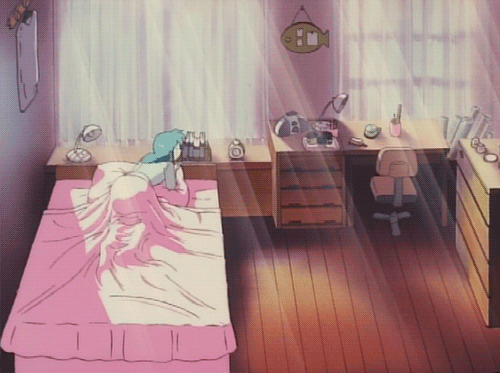Text
UNI STUDENTS, LISTEN UP!
We know who you are based on your dorm room…

Whether you’re freshly starting university, or entering your last year, dorm life is a big part of the whole University experience! Despite how nerve-wracking it may be, being able to decorate your own room to your taste has to be the best part. But what if this blog could predict you, your social life and personality based on your room decorations? Let’s begin….
The Psychology of Belonging
Leaving home for some can be scary, a place that holds all your favourite possessions and so many memories. Some may choose to leave everything behind as a reminder of childhood, I know when moving to University I left my beloved trinkets at home! Some research such as Russell Belks study highlight the importance of our possessions related to curating our own identities. Evidence had suggested that our understanding of our own identities are quite fragile, yet surrounding ourself with items with significant meaning can help strengthen the sense of self. This means that items that may seem meaningless to bring to University, such as that one boy band poster or stack of CDs actually may help you carry on the identity your curated while a t home, ultimately aiding the transition into University life Identities are integral to our personal and social lives, they allow us to connect with others and often form relationships.
In addition, identities are scaffolded through likes and dislikes, many we display through decorations. Researchers such as Duncan and Duncan 1947 correlated losing the items we hold close as an entire loss of self, as if we’re missing a piece of our extended self. For instance, losing a trinket holding a lot of memories e.g from a family holiday or a gift given by someone special can have negative impacts on our mental health mimicking the real feelings of loss. Consider this when deciding what to take, University is a new situation for many of us, so exaggerating the feelings of loss may make your experience less enjoyable.
The Personal Living Space Cue Inventory (PLSCI) was created by Gosling et al., to measure reoccurring themes in personal spaces such as dorm and bedrooms. Finding that those with many posters or photos were regarded as highly decorated supporting the ideas that a personal living space supports the idea of safety, continuity and self-representation and often are the hub for regulating social interactions. So again this may prove the idea that our identities are directly impacted by our surroundings, in this instance boosting social skills as peoples room decorations can be a point of interest and friendships may flurry from these interactions as well as again regulating our own self image.
Theories have been created from research such as the Interactionalist theory (Buss 1987 and Synder & Ickes 1985) that place important on social environments such as friendship groups to reinforce crafted physical areas that reflect who we are.
Your personality is complex

Quickly, a Introduction to The Big 5 Personality!
Often considered the fundementals of personality in Psychology, people are measured on these scales to predict how they may think or act
Openness- curiosity and creativity
Conscientiousness- organised and dependable
Extroversion- seeking company of others
Agreeableness- trusting and affectionate
Neuroticism- disposition to stress
The Big 5 Personality Traits (D.W. Fiske 1949) are often used in psychology to explain life outcomes, our responses to social situations and generally who we are as a person and our dorm room décor may to influenced by these traits.
These examples come from results in Goslings and Sei Jin Ko ‘A Room With a Cue’ study!
If you strive to have a neat and clean room, perfectly organised and always presentable you’re more than likely high in Conscientiousness. This is due to the personalities strive for perfection and seeking a dependable external view of themselves.
Those who enjoy expressing their favourite interests such as books and CDs are shown to be high in Openness to Experience, being able to appreciate the small things and take enjoyment out of discovering more about themselves.
For Neuroticism it is important to note that this trait is not inherently negative nor has a predisposition to anti-social behaviour as seen in Harrison Goughs study into this trait. In this context, Neuroticism may be seen to be unorganised or messy, yet is proven to be high in those with increased anxiety levels and may be suggested to take some time and redecorate your room. University is a stressful time and having a safe environment to return too after a long day of lectures is exactly what these people need.
So, how should you decorate your room?
The choices are endless, decorate however you wish too. Stigma may surround certain choices but that does not limit you to one design- whether you cover your walls in boy band posters or bring the bare essentials, the choice is yours. Make the most out of the new environment and have fun!
Check out these links for more on the studies and evidence suggested in the article:
References
(PDF) Possessions as the Extended Self. (n.d.). ResearchGate. https://www.researchgate.net/publication/24098554_Possessions_as_the_Extended_Self
APA PsycNet. (n.d.). Psycnet.apa.org. Retrieved December 7, 2023, from https://psycnet.apa.org/record/1955-04468-001
Gosling, S. D., Craik, K. H., Martin, N. R., & Pryor, M. R. (2005). The Personal Living Space Cue Inventory. Environment and Behavior, 37(5), 683–705. https://doi.org/10.1177/0013916504274011
Gosling, S. D., Ko, S. J., Mannarelli, T., & Morris, M. E. (2002). A room with a cue: Personality judgments based on offices and bedrooms. Journal of Personality and Social Psychology, 82(3), 379–398. https://doi.org/10.1037/0022-3514.82.3.379
Matthews, G., Deary, I., & Whiteman, M. (n.d.). The nature of personality traits -Personality Traits, Third Edition Introduction: conceptions of traits. http://static.booktopia.com.au/pdf/9780521716222-1.pdf
0 notes